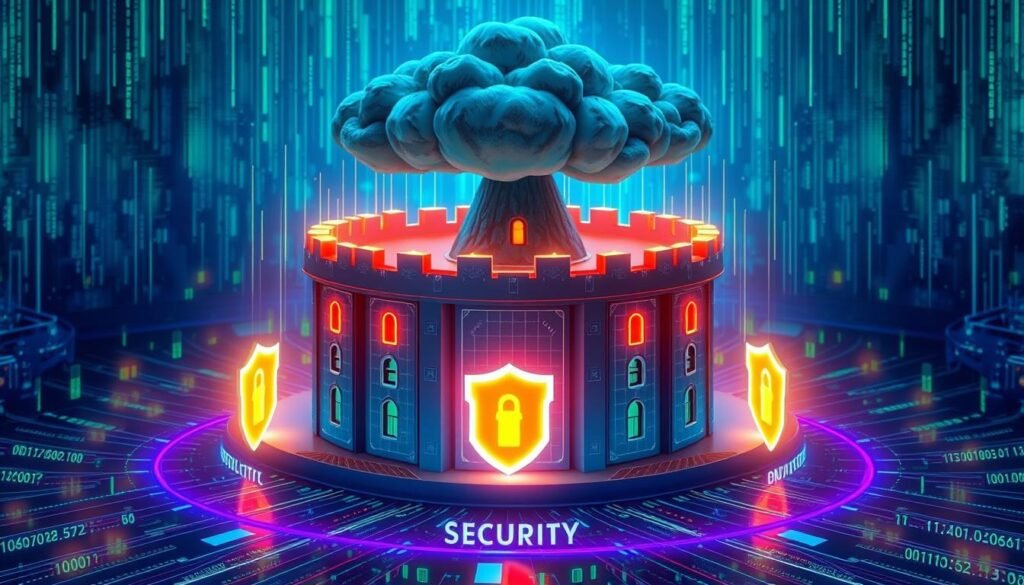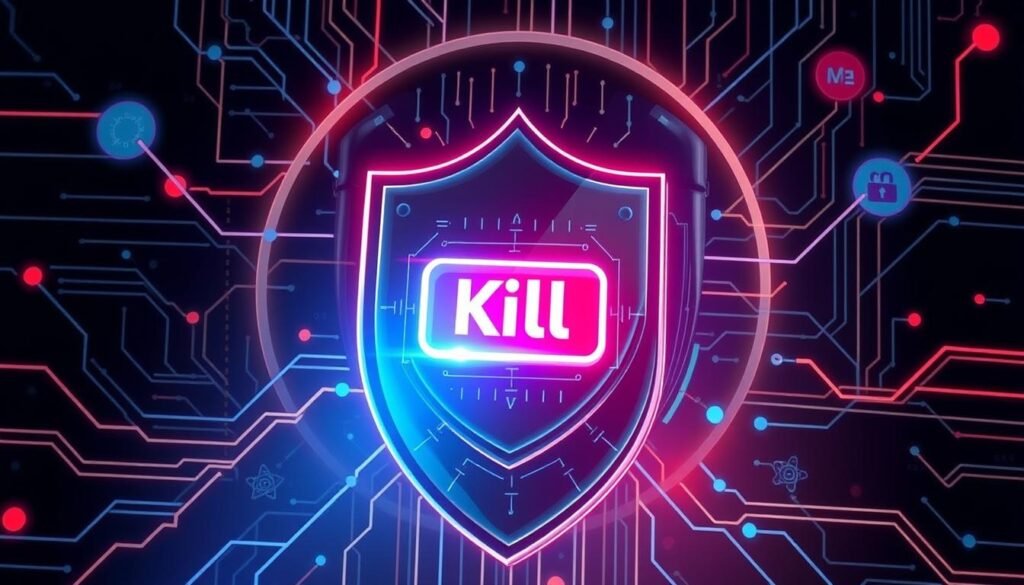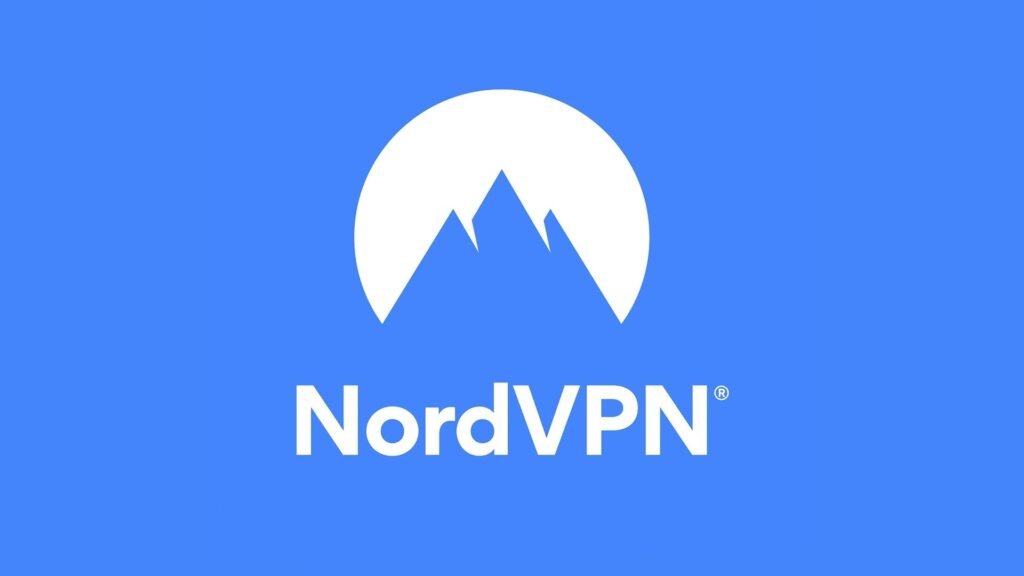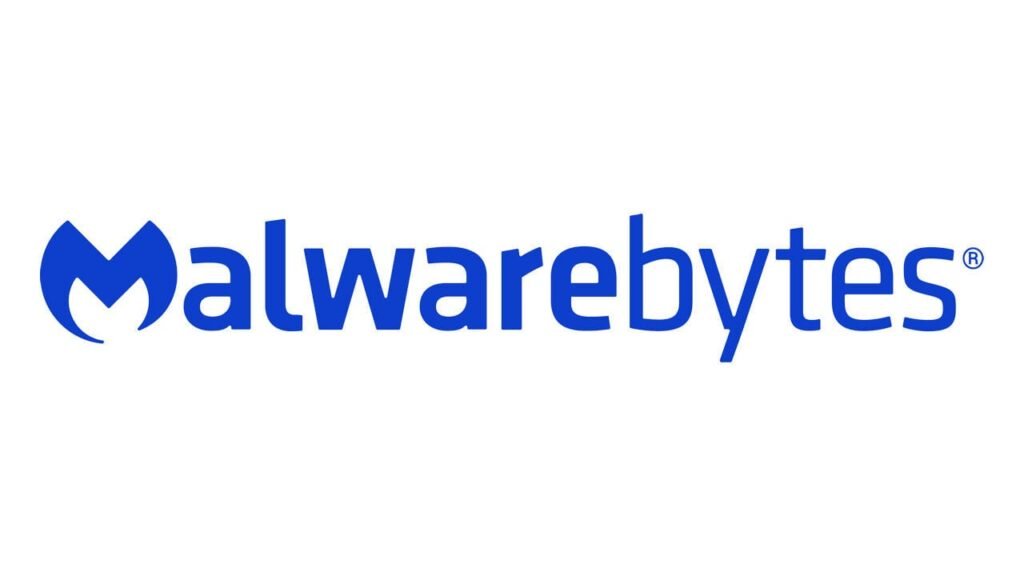Did you know that up to 30% of VPN connections may drop unexpectedly while you're browsing? This shows how important a VPN Kill Switch is. It keeps your internet connection safe and private, even when things go wrong1. With a VPN, your online activities are encrypted, protecting your privacy and identity1.
But without a Kill Switch, a VPN drop can expose your data. This could lead to serious privacy issues.
A VPN Kill Switch is like a shield. It cuts off your internet if the VPN connection fails, stopping your device from using an insecure connection2. It's key to know how it works, especially since even the best VPNs can have connection problems1. Today, we'll dive into what a VPN Kill Switch is and why it's crucial for your online safety and privacy.
Key Takeaways
- • A VPN Kill Switch is vital for maintaining online privacy and security.
- • It prevents data leakage by disabling internet access if the VPN connection fails.
- • Even top-tier VPNs can encounter dropped connections; the Kill Switch mitigates risks.
- • Understanding the functionality of your VPN Kill Switch is crucial for effective use.
- • Different types of Kill Switches offer varying levels of protection and functionality.
Understanding VPN and its Importance for Online Privacy
In today's digital world, keeping your online privacy safe is more important than ever. A VPN, or Virtual Private Network, helps by encrypting your internet and hiding your IP address. This makes your internet use private and adds to your overall online safety.
VPNs work by sending your data through secure servers. This stops ISPs and others from watching your online activities. They help you browse safely, protecting your personal info as you surf the web. Without a VPN, your true IP and web traffic could be seen, putting your data at risk3.
Choosing the right VPN is key. Look for one with a kill switch to keep your internet safe if the VPN connection drops. Consider things like security protocols, no-log policies, and server choices to find the best VPN for your safety4.
In short, using a VPN is crucial for keeping your online life private in today's world. They make sure your personal info stays safe from threats.
The Functionality of a VPN Kill Switch
A VPN kill switch is key to keeping your online activities private and secure. It cuts off your internet if your VPN connection fails. This kill switch functionality protects you from unwanted exposure of your identity and actions. About 84% of VPNs tested have had dropped connections, making a kill switch crucial for privacy and security1.
Some VPN features behave differently when a connection fails. For example, NordVPN reconnects automatically, while ProtonVPN blocks all internet access until the VPN is back. NordVPN's whitelisting lets you choose apps to keep working even when the VPN is down1. Android devices with version 7 or later have a built-in kill switch called Always-on VPN, which stops internet access unless the VPN is on2.
It's important to know how to set up these features for good data leakage prevention. Turning on autosave in apps helps prevent data loss from kill switch interruptions. This way, your sensitive info stays safe by cutting off internet access during VPN failures1. VPNs like NordVPN, ExpressVPN, and Surfshark stress the need for these features for people at high risk, such as journalists and whistleblowers5.
VPN Kill Switch: What It Is and Why You Need It
A VPN Kill Switch is a key tool for keeping your online activities private. It stops your device from using an unsecured internet if your VPN drops. This is very important for people who handle sensitive info, like journalists and activists.
The role of a Kill Switch in VPNs is huge. If your VPN connection fails, the Kill Switch keeps your real IP address hidden. This protects your online identity. Almost all VPN users see the Kill Switch as a must-have for keeping their data safe and private6.
With cyber threats everywhere, having a good VPN is crucial. A VPN with a strong Kill Switch keeps your data safe from unauthorized access. For example, Proton VPN has a full system-level Kill Switch on many platforms, showing how important solid security is7.
When picking a VPN, look at the Kill Switch feature closely. The system-level Kill Switch is often preferred for its reliability. It makes your online space safer. On the other hand, application-level Kill Switches let you choose which apps stay connected, adding more control over your data6.
In short, getting a VPN with a strong Kill Switch is a big step towards better online security. As threats to our online privacy grow, the need for this feature is more important than ever.
How a Kill Switch Enhances Your Internet Security
A VPN kill switch is key for keeping your online data safe. It makes sure your connection stays secure, even when it drops unexpectedly. This feature stops your personal info from leaking by cutting off internet access if the VPN goes down.
It acts as a backup, blocking any unsecured connections until you're safely back on the VPN server8.
Preventing Data Leakage
Data leakage is a big problem in today's online world. A kill switch keeps your sensitive info safe by cutting off the internet if it spots any trouble8. This is really important when using public Wi-Fi, where risks are much higher9.
By making sure your device or apps disconnect, the kill switch boosts your internet security. It keeps your data safe from being intercepted by others.
Ensuring Secure Browsing
Keeping your browsing habits safe is crucial, especially in places where the internet is censored. A VPN kill switch protects your online identity and keeps you private from prying eyes9. It also helps deal with problems like weak Wi-Fi signals or busy networks8.
With this extra security, you can browse the web without worry. Your data stays safe until your connection is back up and running.

Types of VPN Kill Switches Available
Knowing about different kill switches can make your VPN use better and safer. There are two main types: application-level and system-level kill switches. Each has its own benefits and limits, affecting how you use the internet.
Application-Level Kill Switches
Application-level kill switches let you pick which apps to stop using the internet if the VPN fails. This is great for keeping some internet access while protecting sensitive data. For example, you can set it to close your messaging app if the VPN goes down, keeping your chats safe.
System-Level Kill Switches
System-level kill switches, on the other hand, block all internet use if the VPN drops. This is key for those who want top security, as it stops data leaks that could reveal your IP. ExpressVPN's Network Lock feature is a good example of this, showing their dedication to safety10.
With a system-level kill switch, you know your whole device is safe from leaks11. In today's world, both types of kill switches are crucial for protecting your privacy online.
Why Your VPN Needs a Kill Switch
A VPN kill switch is key to keeping your privacy safe when your connection drops. It's especially important for those who handle sensitive info. This feature helps protect sensitive information from cyber threats.
Protecting Sensitive Information
Without a kill switch, your real IP address can be exposed if your VPN connection fails. This is a big risk for activists, journalists, and torrent users who share sensitive info12. A strong kill switch, like Proton VPN's, blocks all internet traffic if the connection drops12. This is crucial for keeping your data safe, especially in risky situations.
Mitigating Risks from Connection Drops
Connection drops can happen for many reasons, like unstable networks or software issues. A VPN kill switch is vital in these situations. It makes sure your data stays safe during these interruptions. ExpressVPN's Network Lock is a great example of a kill switch that works automatically13.
By keeping the kill switch on, you prevent data leaks. This ensures your protection is always active.
Common Reasons for VPN Connection Drops
Knowing why VPN connections drop is key to better online security. Network instability often causes these drops, especially if your internet is unreliable. This can happen due to your local network or your Internet Service Provider (ISP).
Network Instability
Network instability is a big reason for VPN drops. If your internet is not steady or strong, your VPN might struggle to stay connected. ExpressVPN's Network Lock feature kicks in to keep your data safe when this happens14. To avoid these problems, use a wired connection when you can or make sure your Wi-Fi is strong.
Software Interference
Software conflicts can also cause VPN drops. Problems with other apps or your operating system can mess with your VPN connection. Firewalls or antivirus programs might block your VPN traffic, making things worse15. Knowing how to tweak these settings can help make your VPN experience smoother and more reliable.
How to Enable and Configure a VPN Kill Switch
Learning how to turn on a kill switch is key to keeping your online data safe. It stops data leaks when your VPN connection is shaky. Many top VPN services let you turn on this feature in their apps. Here's how to find and set it up.
Finding the Setting in Your VPN App
To turn on the kill switch, start by looking through your VPN app's settings. Most providers make it easy:
- • Open your VPN app and go to the settings menu.
- • Look for sections labeled “Security” or “Privacy.”
- • Find the option to enable or toggle the kill switch feature.
Some VPNs, like ExpressVPN, turn on their kill switch by default. This gives you protection right away if your connection goes down16. Make sure to check this feature after you install it, especially on devices with newer operating systems like Android 7 and above. These devices have built-in kill switch features1.
Best Practices for Managing Your Kill Switch
Good kill switch management boosts your online safety. Here are some tips:
- 1. Always keep the kill switch enabled: Turning off the kill switch can leave your data open during connection problems.
- 2. Use application-level settings: If you can, choose specific apps for connection control. This helps avoid interruptions16.
- 3. Monitor for updates: Keep an eye out for updates to your VPN software. They might improve the kill switch's performance or add new features.
- 4. Test the kill switch: Check it works right by simulating a connection drop.
- 5. Familiarize yourself with whitelisting options: If your VPN has it, use whitelisting. It lets you pick apps that can go around the kill switch when needed1.
Conclusion
The VPN Kill Switch is key for keeping your online world safe. It kicks in when your VPN connection fails, stopping your data from being seen. With over 15 billion stolen logins for sale online, keeping your data safe is more important than ever17.
Using a VPN Kill Switch keeps your connection safe, especially when you're on public Wi-Fi18. Top VPNs like NordVPN and Surfshark have strong kill switch options. They offer everything from app-level to full system protection19.
Learning about and setting up the VPN Kill Switch boosts your online safety. As the internet grows, protecting your data is crucial. It helps keep your privacy and anonymity safe while you're online18.




